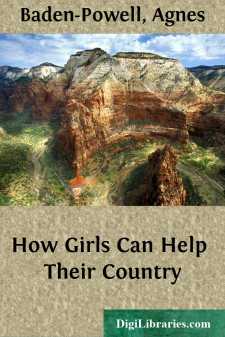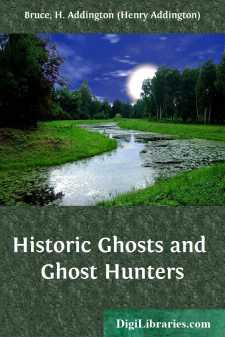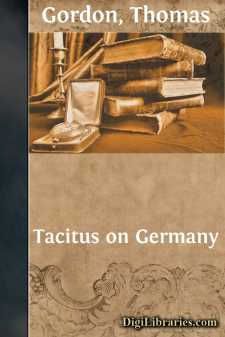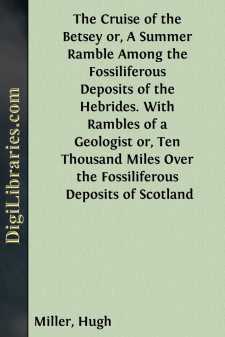Non-Classifiable
- Non-Classifiable 1768
Non-Classifiable Books
Sort by:
HISTORY OF GIRL SCOUTS Girl Scouts, like Boy Scouts, are found all over the world. When Sir Robert Baden-Powell formed the first troops of Boy Scouts, six thousand girls enrolled themselves, but, as Sir Robert's project did not include the admission of girls, he asked his sister, Miss Baden-Powell, to found a similar organization for girls, based on the Boy Scout laws, with activities and...
more...
by:
Herbert Cook
CHAPTER I Apart from tradition, very few ascertained facts are known to us as to Giorgione's life. The date of his birth is conjectural, there being but Vasari's unsupported testimony that he died in his thirty-fourth year. Now we know from unimpeachable sources that his death happened in October-November 1510, so that, assuming Vasari's statement to be correct, Giorgione will have been...
more...
by:
W. James King
Until several decades ago, the physical sciences were considered to have had their origins in the 17th century—mechanics beginning with men like Galileo Galilei and magnetism with men like the Elizabethan physician and scientist William Gilbert. Historians of science, however, have traced many of the 17th century's concepts of mechanics back into the Middle Ages. Here, Gilbert's explanation...
more...
The Devils of Loudun Loudun is a small town in France about midway between the ancient and romantic cities of Tours and Poitiers. To-day it is an exceedingly unpretentious and an exceedingly sleepy place; but in the seventeenth century it was in vastly better estate. Then its markets, its shops, its inns, lacked not business. Its churches were thronged with worshipers. Through its narrow streets proud...
more...
CHAPTER I THE RIGHT TO MAKE WAR Since 1795, when Immanuel Kant published in his old age his treatise on "Perpetual Peace," many have considered it an established fact that war is the destruction of all good and the origin of all evil. In spite of all that history teaches, no conviction is felt that the struggle between nations is inevitable, and the growth of civilization is credited with a...
more...
CHAPTER I. CHRISTMAS "Don't look! There, now it's done!" cried Bertha. It was two nights before Christmas. Bertha was in the big living-room with her mother and older sister. Each sat as close as possible to the candle-light, and was busily working on something in her lap. But, strange to say, they did not face each other. They were sitting back to back. "What an unsociable way to...
more...
by:
Thomas Gordon
INTRODUCTORY NOTE The dates of the birth and death of Tacitus are uncertain, but it is probable that he was born about 54 A. D. and died after 117. He was a contemporary and friend of the younger Pliny, who addressed to him some of his most famous epistles. Tacitus was apparently of the equestrian class, was an advocate by training, and had a reputation as an orator, though none of his speeches has...
more...
CHAPTER I SURVEY OF FIELD In adapting ourselves to physical environment it has been necessary to learn something about the earth. Mainly within the last century has this knowledge been organized into the science of geology, and only within the last few decades have the complex and increasing demands of modern civilization required the applications of geology to practical uses, resulting in the...
more...
by:
Hugh Miller
CHAPTER I. Preparation—Departure—Recent and Ancient Monstrosities—A Free Church Yacht—Down the Clyde—Jura—Prof. Walker's Experiment—Whirlpool near Scarba—Geological Character of the Western Highlands—An Illustration—Different Ages of Outer and Inner Hebrides—Mt. Blanc and the Himalayas "mere upstarts"—Esdaile Quarries—Oban—A Section through Conglomerate and...
more...
FOREWORD Once upon a time as four blind men sat by the roadside they heard the tramp of an elephant’s feet, and said one to another, “Here comes an elephant; now we shall know what he is like.” The first blind man put out his hand and touched the elephant’s broad side. The second took hold of a leg. The third grasped a tusk, and the fourth clutched the animal’s tail. “Now do you know what...
more...











